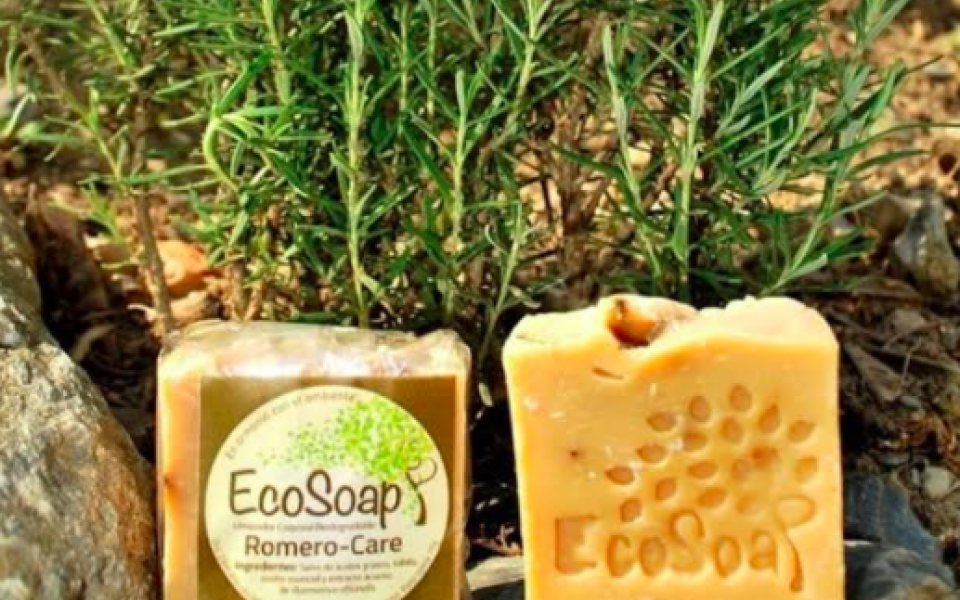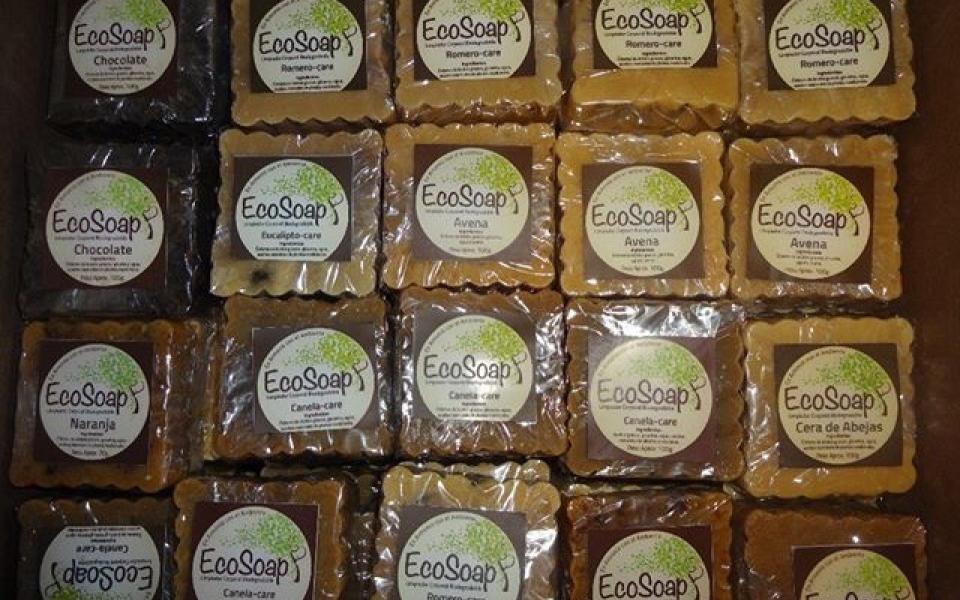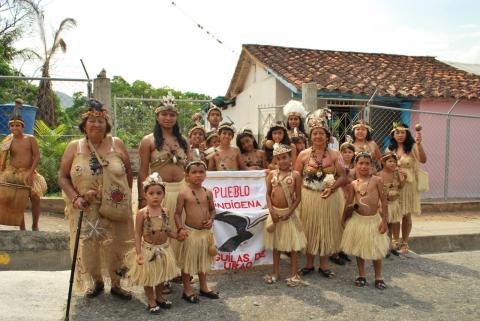
Quinaroa CC joins interdisciplinary team to create handmade soaps that are made from extracts and oils from medicinal plants, as a method to deal with the shortage of toilet soaps.
One of the first teachings given to children by Indigenous Quinaroes is respect for nature, the value that each animal and plant have for all living beings. It is essential that every member of the people understand this since a very young age. Each person is being trained while experiencing life, so each path taken is going along with people that together will do their work in society.
In the last three years, our country has shown its highest level of crisis, both in the city and in the countryside daily life has been affected by the lack of food, medicines and basic needs products. The difference is that in the rural area there are still very productive lands and that is where our indigenous brothers and sisters continue to work together. For a couple of years we have been producing corn flour with quality and in quantity to cover requests of the cities: Lagunillas and Mérida, the land is not only worked by indigenous people, but also by non-indigenous, following practices that are friendly with the environment.
On the other hand, many of us have left Lagunillas and are in other states of the country, such is the case of Sister Yelitza Rangel, who following the advice of the Mohan of the Quinaroes Indigenous People, now she continues to build her trail in Trujillo lands. There, not only she has dedicated herself to carrying out baseline studies in birds for the conservation of Trujillo dry forests, but she also joined an interdisciplinary team that works with the elaboration of handmade soaps that are made from extracts and oils from medicinal plants, as a proposal to deal with the shortage of toilet soaps.
Nowadays, strong ties have been created with students of the University of Los Andes (ULA) who have not only learned to market soap, but also work in the preparation and packaging, having a source of income that has allowed them to bring to their homes a little more money earned in their jobs. This work is at conventional time, so they do not stop their studies. It is important to point out that 2017 was a very hard year for the country and for the University, enrollment dropped; there was a lot of desertion not only of students, but also of teachers, who are going to other countries searching better opportunities.
Our sister Yelitza Rangel, primary contact of the CC Quinaroes has allowed work ties and brotherhood between indigenous and non-indigenous to continue their course, with these activities not only the Quinaroes CC has been benefited, but also we have transcended to other regions, to value nature has been and is being very important in such distressed times. We have found that keeping working in a team based on harmony, respect, solidarity, love, joy and common well-being we can stay at our beloved country, Venezuela.
This year Yelitza aims finishing totaling birds in the Forest, for giving way of social work at communities, on the issue of production soaps to improve this manufacture and be able to help covering the national demand and dreaming in two years to transcend frontiers. In the photos you can see for example how the money earned let us framing images that serve to know about our ecosystems, besides paying part of the food and transfer of the staff to work in the bird counting, as well as get minor equipment that is needed in the laboratories.
Therefore we can testify that loving nature it is possible to work together and to join efforts for improving the quality of our education and of our life.

